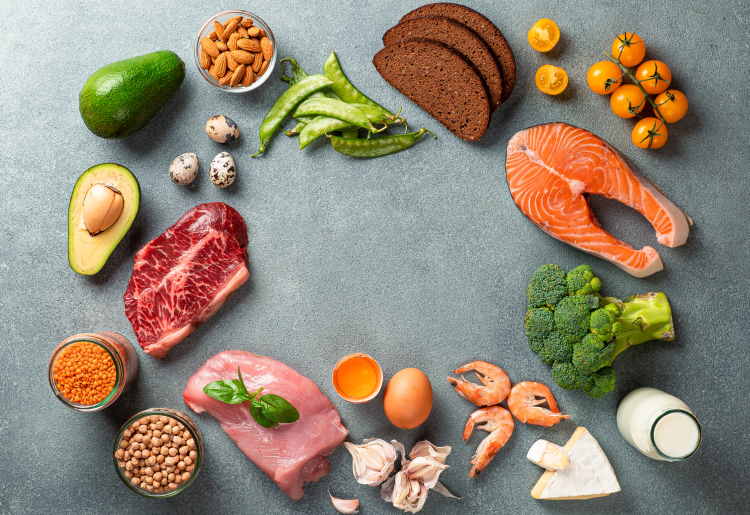While the critical component is controlling your blood sugar through certain foods, the element of time plays a larger role in a diabetes diet than in others. The times of day you eat--and the intervals between them--are important factors and should be taken into consideration.
For this reason, it’s important to work with a doctor, registered dietician, or nutritionist. No 2 people are the same, and each may react differently to similar foods and schedules.
What is a Diabetes Diet?
Diabetes affects how you store blood sugar, and so a diabetes diet focuses on controlling blood sugar and optimizing the insulin in your body.
Carbohydrates are the main cause of high blood sugar. Following a diabetes diet means carefully managing your carb intake and eating three meals a day to manage your blood sugar.
Why Follow a Diabetes Diet
A diabetes diet is the best way to regulate your blood sugar as well as prevent common risks associated with diabetes such as obesity and heart disease.
There are different types of diabetes and each requires a different diet and plan. In type-1 diabetes, no insulin is being produced in your body. Type-2 diabetes means that an inefficient amount of insulin is produced. There are other types of diabetes as well, including prediabetes and gestational diabetes, and the type will determine exactly what plan to follow.
Foods to Eat and Avoid on a Diabetes Diet
The American Diabetes Association offers a reassuring outlook on managing a diabetic diet. “It’s all about balance,” they say, meaning that you’re not automatically confined to dull, tasteless foods. You don’t even need to give up your favorite foods. A good diabetes diet is one that’s carefully planned to regulate blood sugar. Depending on the type of diabetes you have and how your body works, this could mean simply tweaking your diet and your eating schedule.
It’s important to work with a dietician or other licensed healthcare professional to figure out a regimen that works for you. In general, the Mayo Clinic suggest healthy carbs, foods high in fiber, fish, and healthy fats.
The goal is to keep your calorie count low and avoid fats and unhealthy carbs. It’s best to focus on fruits, vegetables, and grains, though, as stated above, portion-control and scheduling is essential to achieving a healthy balance.
The American Diabetes Association suggests focusing on lean meats and plant-based proteins and avoiding saturated fats and sodium. Some key tips on what to avoid, limit, and focus on include:
- Whole processed foods over unprocessed foods
- Non-starchy vegetables
- Avoid added sugars and refined grains
- Substitute water for soda and sugary drinks
Although there’s no one-size-fits-all diet for diabetes, sources such as the American Diabetes Association, the Mayo Clinic, and others say that the Mediterranean diet is optimal for managing diabetes, as well as associated risks like heart disease. The Mediterranean diet consists mainly of veggies, fruits, nuts, fish, seafood, and olive oil.
